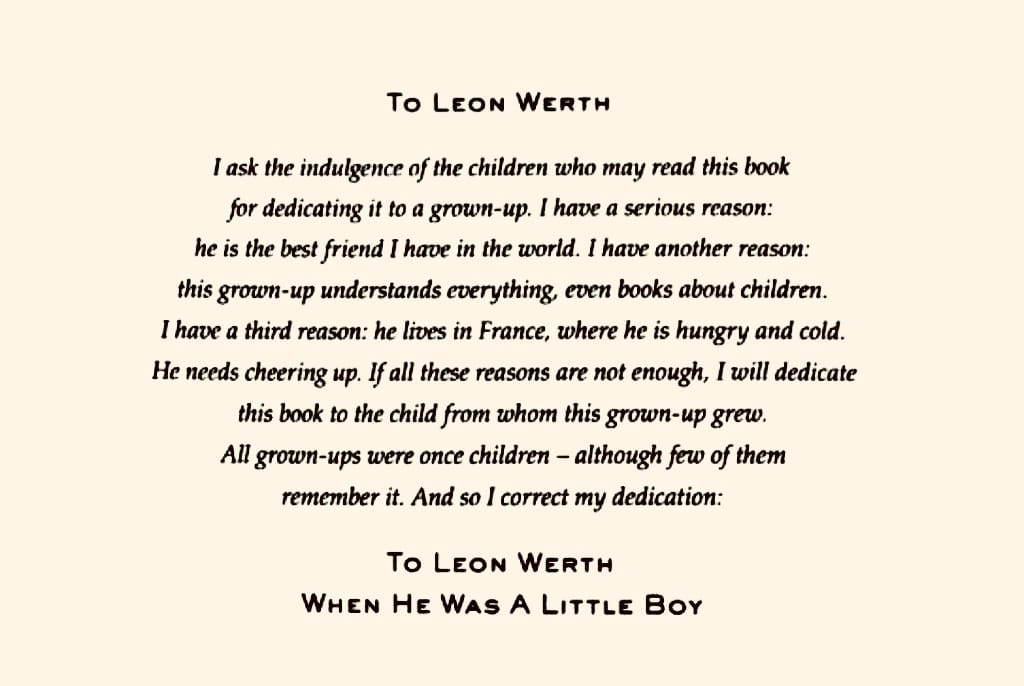A book dedication is a way for authors to bestow a high honor on a person (or small group of people) they want to praise or otherwise spotlight. It’s not fundamentally different than dedicating anything else, like a ship or a monument.
Book dedications are often overlooked sections at the beginning of books, yet they hold a unique charm and significance. These brief introductions set the stage, offering a glimpse into the heart and mind of the author. They reveal a personal connection or inspiration behind the writing, making them a special nod to those who have influenced the work.
From touching tributes to witty remarks, book dedications come in different forms. Authors use the dedication page to honor loved ones, mentors, or even places that have shaped their journeys. For instance, E. E. Cummings famously dedicated his 1935 poetry collection No Thanks to publishers who had rejected his work, showcasing a mix of defiance and gratitude.
Readers who take the time to explore these dedications can discover hidden layers of meaning and emotion. Understanding the dedication offers an enriching perspective before delving into the main narrative, adding depth to the reading experience.
The Art and Purpose of Book Dedications
A book dedication is a short but meaningful way for an author to honor someone or something significant. Often found at the beginning of a book, this section can convey gratitude, love, or remembrance. The art of crafting a dedication lies in its conciseness and emotional impact.
Purpose:
- Acknowledgment: Authors frequently dedicate their books to individuals who supported or inspired them during the writing process.
- Tribute: Some authors use dedications to honor the memory of loved ones.
- Cause or Idea: Others may dedicate their work to an idea, a movement, or a place significant to them.
Art of Writing:
- Conciseness: A dedication is typically just a sentence or two.
- Emotion: Focus on conveying a single emotion. Mixing tones can dilute the message.
- Personalization: Authors choose how to address the dedicatee, whether by name, title, or a pet name.
Examples:
- “To Emma, my muse and my strength.”
- “For my parents, who taught me to dream.”
- “Dedicated to the fallen heroes, forever remembered.”
Formatting choices can vary. Some authors prefer the dedication to be in a larger or different font to stand out. Whether simple or elaborate, the dedication sets a personal tone for the reader, inviting them into the author’s world.
Tips:
- Be Sincere: Authenticity resonates with readers.
- Keep It Relevant: Ensure the dedication aligns with the book’s themes.
Reasons Authors Dedicate Books
Expressing Gratitude: Authors often dedicate books to show appreciation for the support they received from individuals who played a crucial role during the writing process. This might include family, friends, mentors, or colleagues.
Honoring Inspiration: Some books are dedicated to people who inspired the author. These could be historical figures, writers whose work influenced the book, or even characters that the author admires.
Acknowledging Emotional Support: Authors frequently dedicate their works to loved ones who provided emotional backing, be it through encouragement, love, or understanding. This can be especially common in personal or autobiographical works.
Commemorating a Loved One: Dedicating a book to someone who has passed away is another reason. This serves as a tribute to their memory and acknowledges their impact on the author’s life.
Recognizing Professional Contribution: In some cases, authors acknowledge the professional contribution of editors, agents, or publishers. This is a way of showing gratitude for the guidance and effort put into bringing the book to fruition.
Celebrating Milestones: Authors might also use dedications to mark significant life events, such as marriages, births, or anniversaries. This personal touch adds a layer of meaning to the dedication.
Paying Homage to a Locale: Occasionally, authors dedicate books to a place that shaped their narrative. This could be a hometown, a country, or even a specific location where the story unfolds.
Fostering Connections with Readers: A dedication provides a glimpse into the author’s personal world, helping readers feel a deeper connection to the text and its creator.
Personal Fulfillment: Sometimes, dedicating a book fulfills a personal promise or goal. It can be a way for authors to express personal growth or accomplish something meaningful to them.
For various reasons, dedications enrich the reading experience by adding layers of context and emotion. Whether they are heartfelt, profound, or simply appreciative, dedications are a unique touch in the world of literature.
Characteristics of a Powerful Dedication
A powerful book dedication is concise yet meaningful, offering a glimpse into the author’s motivations and acknowledgments. It balances brevity with depth and caters to different audiences, whether personal or professional.
Brevity and Clarity
A book dedication should be succinct. Most dedications are just a sentence or two. This brevity ensures the message is clear and impactful. Lengthy dedications can dilute the sentiment and overwhelm the reader.
Using precise language is crucial. For example, “To Mom and Dad, for your endless support,” conveys gratitude clearly without unnecessary words.
Clarity ensures the reader understands the dedication instantly. Avoid complex sentences or ambiguous phrases. The simpler, the better. Short, direct sentences are often the most powerful and memorable.
Personal and Professional Dedications
Personal dedications usually address loved ones. They are heartfelt and emotional. An example: “For Emily, whose love keeps me writing.”
Professional dedications are directed towards mentors or industry peers. They reflect appreciation and respect. For instance, “To Professor John, for igniting my passion for literature.”
Regardless of the type, both should reflect genuine sentiments. Authenticity resonates with readers and adds depth to the author’s work.
Notable Dedication Types and Formulations
Book dedications often reveal personal connections, inspirations, and moments of creativity. Key themes include tributes to family members, mentors, and unique or unconventional approaches.
To Family Members
Authors frequently dedicate their books to family members. These dedications show gratitude and recognize support from spouses, children, or parents. For example, J.K. Rowling’s dedication in Harry Potter and the Deathly Hallows (2007) includes a tribute to her readers as well as her family.
This type often highlights the personal sacrifices made by family members. It may include phrases like “To my loving wife” or “For my children, who inspire me every day.” Sentimentality and intimacy are usually key elements.
To Mentors and Inspirational Figures
Dedications to mentors and inspirational figures honor those who have influenced the author’s journey. This could be a real person, such as a teacher, professional mentor, or literary figure.
In Salman Rushdie’s Haroun and the Sea of Stories (1990), the dedication invokes multiple dream worlds, suggesting inspiration from literary traditions. These dedications often include expressions of admiration and gratitude. They recognize the authors’ sources of motivation and guidance.
Creative and Unconventional Dedications
Some authors take a more creative or unconventional route with their dedications. E. E. Cummings’ No Thanks (1935) dedication to multiple publishers exemplifies this. Such dedications might be humorous, cryptic, or even poetic.
They can also employ playfulness or irony. For instance, Neil Gaiman’s dedication in Anansi Boys (2005) features a story within the dedication, adding a layer of engagement right at the start. This approach can make dedications not just heartfelt but also a memorable part of the literary work.
These types often blur the line between the book’s content and its framing, contributing to a richer entry into the author’s world.
Examples of Memorable Book Dedications
Authors often make their dedications meaningful and unique. Below are some memorable examples.
- The Lion, the Witch, and the Wardrobe (1950) by C.S. Lewis: Lewis dedicates this to his goddaughter, Lucy Barfield, expressing his deep affection and personal connection to her. It also touches on the timeless nature of fairy tales and the idea that one can rediscover the magic of childhood stories at any age. He acknowledges that she might have outgrown fairy tales by the time the book is published.
My dear Lucy,
I wrote this story for you, but when I began it I had not realized that girls grow quicker than books. As a result, you are already too old for fairy tales, and by the time it is printed and bound you will be older still. But some day you will be old enough to start reading fairy tales again. You can then take it down from some upper shelf, dust it, and tell me what you think of it. I shall probably be too deaf to hear, and too old to understand a word you say, but I shall still be
your affectionate Godfather,
C. S. Lewis
- The Little Prince (1943) by Antoine de Saint-Exupéry: Saint-Exupéry dedicates his book to his friend Leon Werth, mentioning his friend’s understanding of children’s books and his difficult circumstances during the war. His dedication is poignant and multifaceted, highlighting the author’s close relationship with Werth and the broader context of World War II. It underscores the theme of retaining one’s inner child and the empathy required to understand children’s literature.
To Leon Werth I ask the indulgence of the children who may read this book for dedicating it to a grown-up. I have a serious reason: he is the best friend I have in the world. I have another reason: this grown-up understands everything, even books about children. I have a third reason: he lives in France where he is hungry and cold. He needs cheering up. If all these reasons are not enough, I will dedicate the book to the child from whom this grown-up grew. All grown-ups were once children — although few of them remember it. So I correct my dedication: To Leon Werth, when he was a little boy
- The Great Gatsby (1925) by F. Scott Fitzgerald: Fitzgerald dedicates his novel “once again” to his wife, Zelda. This brief and repetitive dedication hints at their complex and tumultuous relationship. It suggests a recurring dedication, possibly indicating ongoing devotion or a cycle of reconciliation in their relationship.
Once again to Zelda
- Harry Potter and the Deathly Hallows (2007) by J.K. Rowling: Seven individuals, including family members and readers who have followed the series, share the dedication. This seven-part dedication is significant because it mirrors the seven books in the series as well as the magical number seven in the Harry Potter universe. It shows Rowling’s gratitude to her loved ones and her readers, acknowledging their support throughout the journey.
The dedication of this book is split seven ways: To Neil, To Jessica, To David, To Kenzie, To Di, To Anne, And to you, If you have stuck with Harry until the very end.
- A Series of Unfortunate Events: The Bad Beginning (1999) by Lemony Snicket (Daniel Handler): This darkly humorous and enigmatic dedication sets the tone for the series. It introduces a recurring character, Beatrice, whose mysterious past is gradually revealed. The dedication encapsulates the blend of tragedy and wit that characterizes the books.
To Beatrice—Darling, dearest, dead.
- The Color Purple (1982) by Alice Walker: This dedication is deeply spiritual and introspective. By dedicating the book to “the Spirit,” Walker acknowledges a higher power or inner force that guided her through the creation of the novel. This could be interpreted in various ways, depending on the reader’s perspective—whether as a divine presence, a muse, or an inner source of strength and inspiration.
To the Spirit:
Without whose assistance
Neither this book
Nor I
Would have been
Written.
- Good Omens (1990) by Neil Gaiman and Terry Pratchett: This dedication pays homage to G. K. Chesterton, a writer known for his wit and philosophical insights. Gaiman and Pratchett dedicate their book to him to acknowledge his influence on their work. By aligning themselves with Chesterton, they highlight the intellectual and humorous lineage from which their own work springs, setting the stage for the satirical and thought-provoking nature of “good omens.”
The authors would like to join the demon Crowley in dedicating this book to the memory of G. K. Chesterton. A man who knew what was going on.
Further Reading
Dear Reader: A Brief History of Book Dedications by Addison Rizer, Book Riot
The tricky art of the book dedication by Cathy Dillon, The Irish Times
Behind the Book Dedications: “A Private Moment in a Public Object” by Julia Carpenter, Literary Hub
10 of the most intriguing book dedications in fiction by Alicia Fernandes, Penguin




